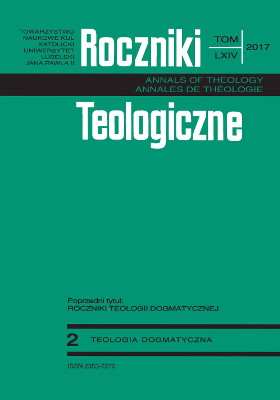Teoria języka religijnego
A Theory of Religious Language
Author(s): Krzysztof GóźdźSubject(s): Christian Theology and Religion, Theology and Religion, Systematic Theology
Published by: Towarzystwo Naukowe KUL & Katolicki Uniwersytet Lubelski Jana Pawła II
Keywords: religious language; theory of religious language; religious language studies; assertive and non-assertive sentences; A. Grabner-Haider
Summary/Abstract: The bibliography of religious language in Poland is rather rich, yet it mostly covers the material aspect of this language variety; quite infrequently does it touch upon its theory. Therefore, the proposal put forwards in the 1970s by Anton Grabner-Haider (* 1940) − Austrian researcher, currently professor emeritus − seems particularly worth familiarizing with. Grabner-Haider has proposed a theory of “critical significance” (kritische Bedeutsamkeit) of religious language and he constantly develops its ramifications. His theory rests on the concept of theology as “systematized knowledge,” which is “the height of systematizing of religious language.” Corollary of the above thesis is the statement that religious language can be a legitimate research subject. Theology is built on the foundation of religious language, which means it has a syntactic and a semantic aspect. Thus, religious language has its assertive (confirming a status quo) and non-assertive (symbols, images, speech acts) components. Grabner-Haider uses these structures to analyse religious texts: biblical, dogmatic, liturgical, works of the Fathers of the Church and of theologians. Grabner-Haider challenges the positivist view of language held by the representatives of Vienna Circle and assigns a greater objective importance to religious language within its own system of reference.
Journal: Roczniki Teologiczne
- Issue Year: 64/2017
- Issue No: 2
- Page Range: 5-32
- Page Count: 28
- Language: Polish

